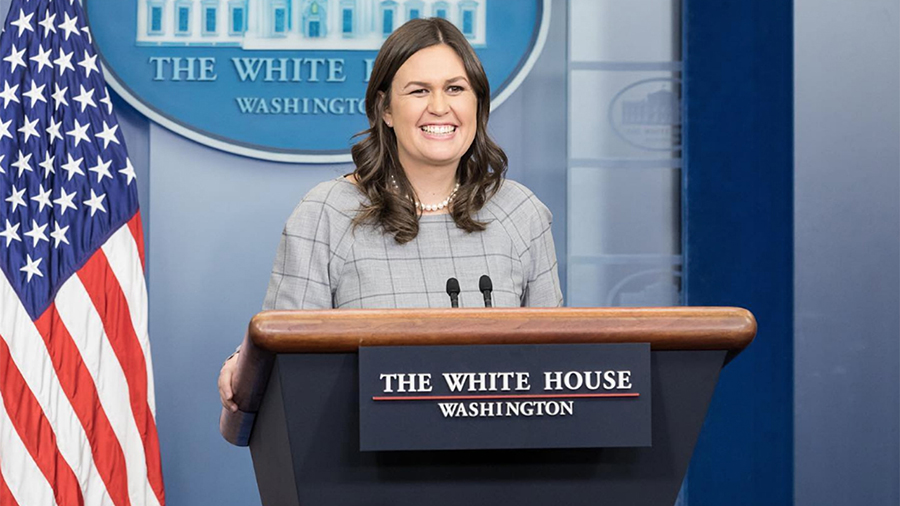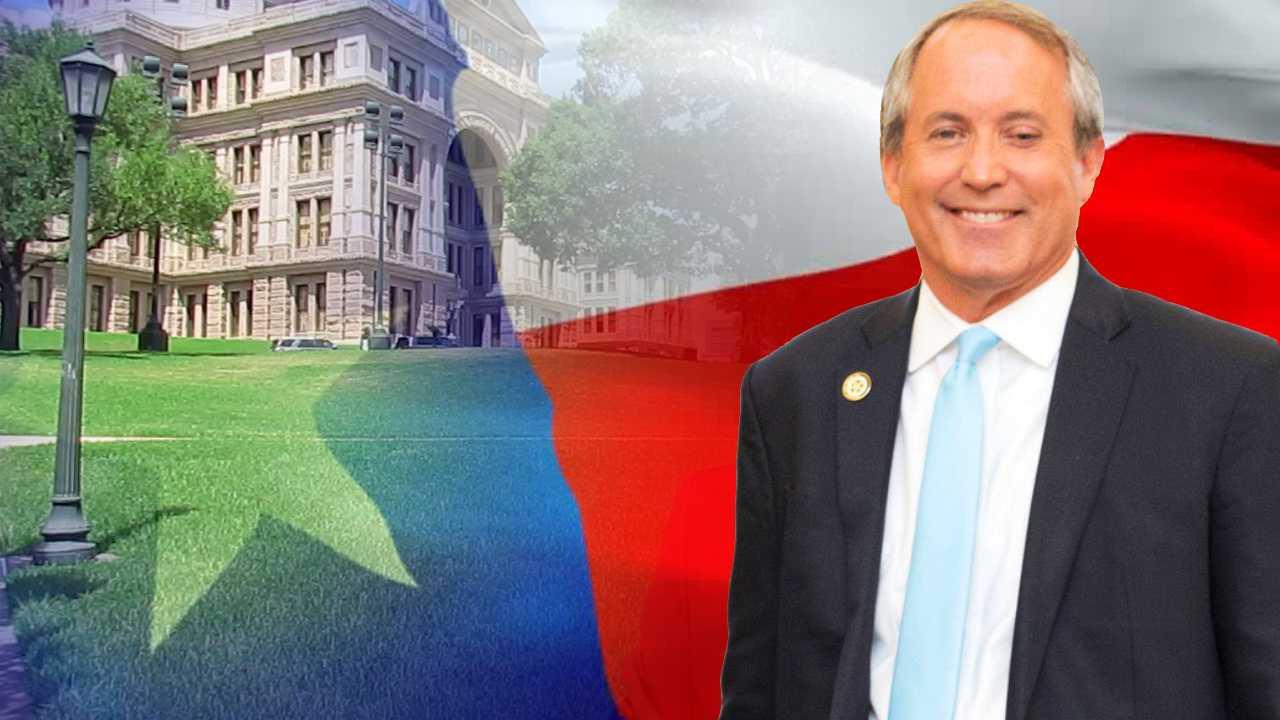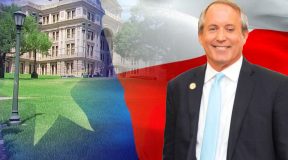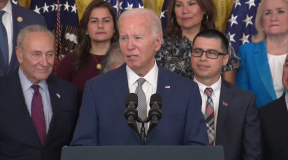 Former Donald Trump’s press secretary wins Arkansas and becomes the first woman in the ordinary state to hold office. Credits: The White House.
Former Donald Trump’s press secretary wins Arkansas and becomes the first woman in the ordinary state to hold office. Credits: The White House.
Former president Trump’s press secretary Sarah Huckabee Sanders was elected governor of Arkansas during midterm elections, and now, she becomes the first woman in the state’s history to hold that office.
In her acceptance speech on Tuesday night, Sanders expressed sympathy for her two leading opponents during the race and highlighted a historic moment for the conservative state of Arkansas.
“I first want to start by thanking my two opponents here in the final stretch, Chris Jones and Ricky Del Harrington,” said Sanders. “One of the most amazing things about tonight is that no matter how it turned out, Arkansas was going to make history tonight.”
Sanders recalled the hard challenges women have battled fiercely throughout social history to become more empowered at all possible levels of our democratic society, including politics.
She also thanked all the active constituents who heartily supported her during the extensive campaign that withstood two years, especially a young immigrant woman who she gratefully considered the ultimate key to her electoral victory.
“People like Lina, an immigrant who came to this country looking for a better life, work as a fashion designer at one of the flatboat company dealerships in Arkansas,” said Sanders. “Whenever Lena had free time, she would come to our office and make calls, knock on doors, and was our best volunteer, reminding us of the greatness and goodness of the people in the state at all times.”
Despite having congratulated the immigrant woman, the governor-elect does not have any project whatsoever that would undoubtedly benefit the Hispanic community in Arkansas. According to the central office of the United States Census’s last count of 2020, more than 256,000 Latinos are living in the natural state.
The only proposal from Sanders that sympathize with the public is about education. She intends to empower parents and provide better educational teaching for children so that they secure a better future.
In key addition to her proposals is safety, which intends to reduce crime in the state, hold criminals accountable and make Arkansas a more protected place to live and work. Although, she also has in mind to expand the state prisons to allow enough space for criminals who violate the law and therefore prevent them away from the streets.
Natalia Escobar, a political science student at the University of Arkansas in Fayetteville, expresses her concerns about Sander’s victory. She said Sanders must have a consensus agenda to support Hispanics living in the state, whom she considered to be part of the local budget due to their economic contributions.
“Being the first woman to lead the state, she must know there are people with different nationalities here, and for that reason, she must have an agenda that includes our population,” she said. “Ignoring the millions of contributions from Latinos is immoral.”
In reference to social issues facing Latinos living in the state, Arkansas does not grant driver’s licenses to undocumented immigrants. The state only grants licenses to permanent residents or U.S. citizens. Therefore, the new governor-elected should carefully consider solving problems that exist within this influential group, as Natalia expressed.
“If they’re going to campaign in electoral districts with a high Hispanic presence, and when it comes to winning the election, but they instantly forget about us, it awful is a slap in our face, but then, they don’t see that, they just care about winning.”
No doubt why Natalia is concerned about the lack of specific proposals for the Hispanic community in Arkansas. The 40-year-old politician focused primarily on national issues rather than the state during her successful campaign. Sanders, who is the daughter of former Gov. Mike Huckabee, regularly vowed to use the job as governor to fight against President Joe Biden and the “radical left.”
Sanders will be sworn in as the 47th Governor of Arkansas, on Tuesday, January 10, 2023.
Last updated on November 10, 2022 by Ramón Warini









